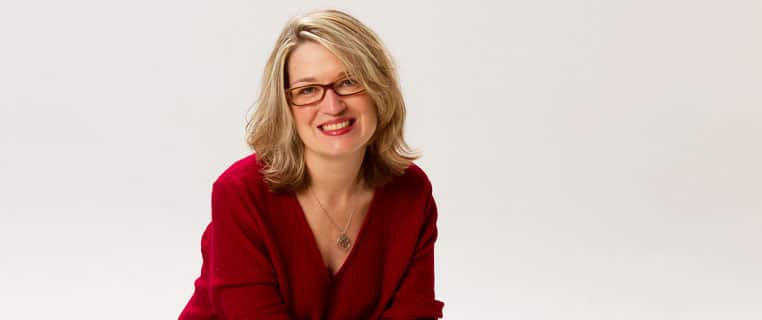As a child, I read in order to escape. But as I enter my forties, I now find that I read in hope of penetrating the culture’s noise, and maybe discovering something more real.
Also, I no longer read just for myself. I read to find books that will help my students understand their world as writers; I read to help my three-year-old daughter grow, learn, and wonder. I read to inform and inspire my own writing. And occasionally, I still read to escape.
Ross Gay’s Catalog of Unabashed Gratitude makes me happier than any book of poetry I’ve read in a long time. Many of the poems concern his work in the Bloomington Community Orchard, and many are odes to everyday objects and activities, in the spirit of Pablo Neruda (e.g. “Ode to Drinking Water from My Hands,” “Ode to Sleeping in My Clothes”). Gay uses a short line, often directly addresses his readers (as “friends”), and describes eating a fig from a tree like this: “I was a little / tipsy on the dance / of the velvety heart rolling / in my mouth / pulling me down and / down into the / oldest countries of my / body where I ate my first fig / from the hand of a man who escaped his country / by swimming through the night”.
I don’t usually care for survival stories, but was riveted by a recent viewing of the 2003 British documentary Touching the Void, based on the book by Joe Simpson. Touching the Void tells the story of Simpson’s and Simon Yates’s near-fatal attempt to scale the western face of a mountain called Siula Grande in the Peruvian Andes. Both appear in the documentary, telling their stories in their own words, so you know from the beginning that both survive. Their tales of getting off the mountain are unforgettable.
I picked up Winter Bees and Other Poems of the Cold at the Minnesota Book Awards ceremony last month, when it won the award for Children’s Literature. Joyce Sidman’s poems explore how over a dozen animals in the far north—including tundra swans, snakes, and chickadees—get through the long, cold winter. The bees, for example, are “Born with eyelash legs / and tinsel wings, / we are nothing on our own. Together we are One.” As a group, these poems show that winter teems with activity and life, even if we can’t see it. Sidebars offer additional scientific information. Beautifully illustrated by Rick Allen.
Lately I find myself poring over the original, sprawling, three-volume hardcover set of The Complete Letters of Vincent Van Gogh (New York Graphic Society). This isn’t the fanciest set of Van Gogh’s complete letters—a six-volume annotated set came out in 2009—but it does include the ink illustrations Van Gogh included with his letters. His language is frank, vivid, and unsentimental, and I am taken by the letters not as autobiography but as an extended treatise on the creative process.
(For my daughter there is Vincent’s Colors, which introduced her to reproductions of sixteen of his most famous paintings. The author takes lines from the letters in which Van Gogh describes the colors in these paintings—a work called Sunflowers is comprised of “twelve flowers that are light on light”; another, called Bedroom at Arles, contains “two chairs the yellow of fresh butter” — and arranges them into a rhyme. It’s delightful.)
Limber, by Angela Pelster, is a book of lyric essays that charts the world’s history through its trees. I don’t understand why this book hasn’t received more attention than it has. It contains everything from an artist who plays the paper-thin cross-sections of tree trunks on his record player, to a man with a fir tree growing in his lung. Limber is a finalist for the 2015 PEN / Diamonstein-Spielvogel Award for the Art of the Essay. It’s a gem.
Soon, my three-year-old’s Montessori school closes for summer, and we’re looking forward to spending time in the kitchen with three cookbooks written for kids her age, by Mollie Katzen of Moosewood Cookbook fame: Salad People, Pretend Soup, and Honest Pretzels. These cookbooks should be considered classics, if they aren’t already. The recipes are for foods like scrambled eggs and icy strawberry slush, often renamed in ways that are fun but not cloying (pasta al pesto is “green spaghetti”). The recipes are in written form for helper-adults, and in visual form so that kids can see what they’re to do; tasks that need to be done by an adult are clearly marked. Children who help prepare food become more adventurous eaters. At least, so I hear.
Katrina Vandenberg, an assistant professor at Hamline University, is the author of The Alphabet Not Unlike the World and Atlas: Poems, both published by Milkweed Editions. Her poems and reviews appear frequently in Orion; her piece “On Cold-Weather Vegetables” was published in the September/October 2010 issue.



Comments
Yes, have heard good things about “Limber.” And Ross Gay’s poetry is really great, will have to find this collection.
I want to read all of these! Thank you.
Please Note: Before submitting, copy your comment to your clipboard, be sure every required field is filled out, and only then submit.